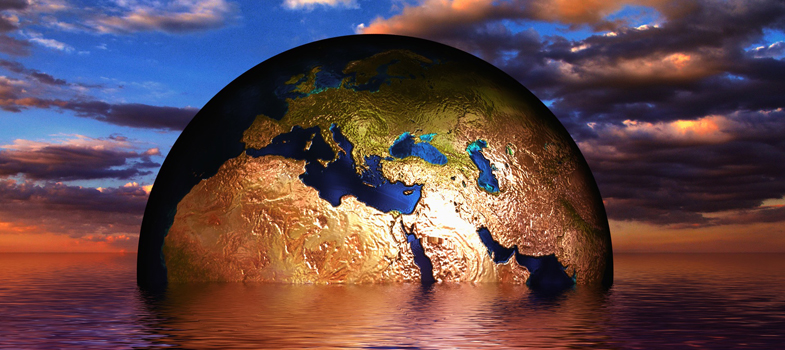5 Changing the global economy
5.1 Global-scale environmental impacts and externalities
The global economy currently refers to the increasing integration of fragmented national markets for goods and services into a single global market. This process has been facilitated by advances in technology, primarily transport and communications, alongside removal of trade barriers. However, a globalised economy has led to global-scale environmental impacts. One key economic concept here is that of an ‘externality’, an impact on a party that is not directly involved in a transaction, and which means that the price does not reflect the full cost or benefit in the production or consumption of a product or service. A well-known externality might be a pollutant such as, in climate change terms, CO2.
CO2 is produced by many economic activities but has effects via climate change that are not included in the prices allocated to the goods and services that emit it. Thus, a carbon-intensive lifestyle in the developed world can lead to impacts in a less-developed nation without the emitter having to pay for it directly. If a pollutant is internalised, then the costs of its impacts (or mitigation to prevent them) are borne by the polluter and may be passed on to the price of the good or service. However, in practice this can be difficult if monetary values of impacts cannot be adequately determined. This links into the idea of the atmosphere and climate system being a global ‘commons’ which is owned by no-one but can be used by all – in this case as a dump for excess CO2 – a situation which, like many other commons, has led to its degradation.
There have been many alternatives proposed as models for changing the global economy, and many of these might be argued to help reduce carbon emissions and mitigate climate change (there are around 40 fully formulated frameworks). Given the importance of rapid and effective large-scale action, and that a 2008 survey in 12 countries indicated that consumers were able to put climate concerns ahead of the economy and wanted governments to stop haggling and start acting on climate change, it is worth exploring some of the changes that could be made to the global economy.
4.6 Agriculture and forestry
